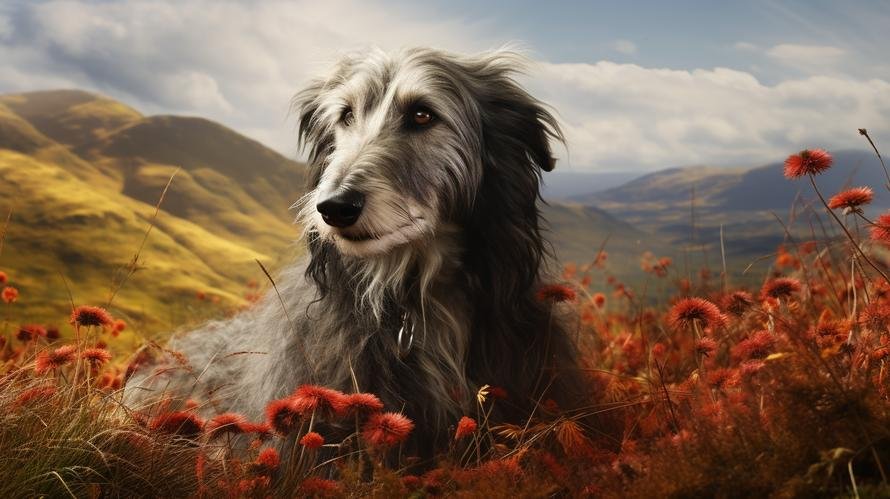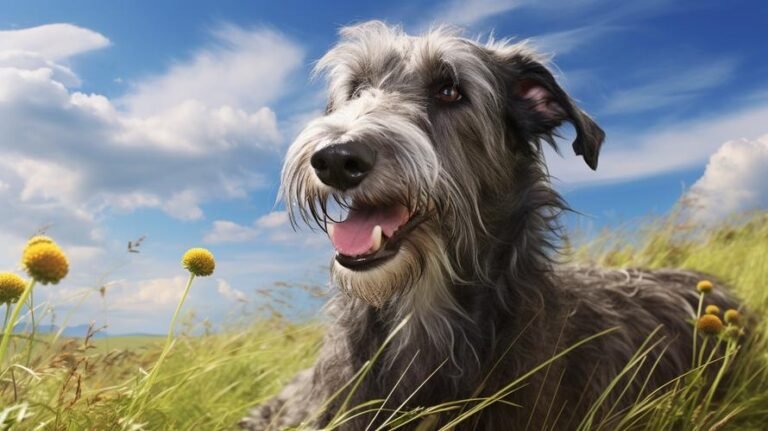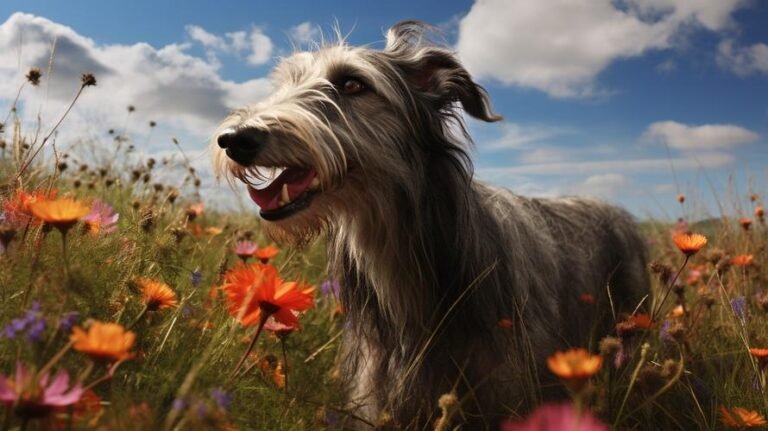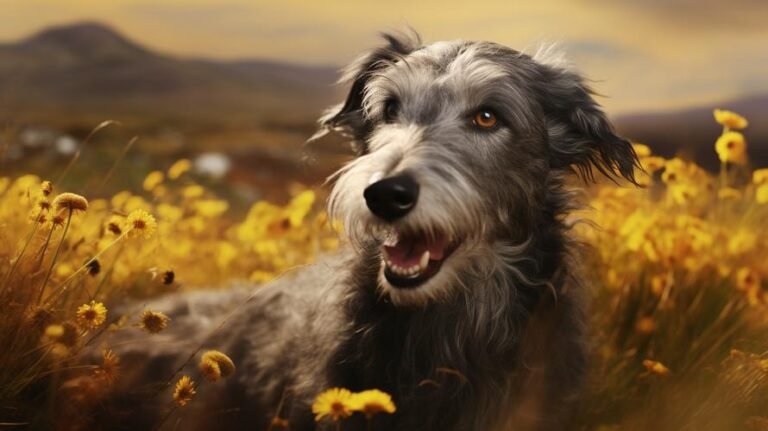The Scottish Deerhound, a hound of majesty and grace, has been a beloved companion of many for centuries. Standing tall with a robust body and a muscular build, this breed is often compared to a rough-coated Greyhound for its pleasing physical traits. Not just for their sturdiness, but Scottish Deerhounds are also cherished for their friendly and gentle nature, making them an excellent choice for those seeking a loving family pet.
However, being a dog parent isn’t always about cuddling and playtime. It also demands a great deal of responsibility, mainly revolving around keeping your pet healthy and fit. One of the most essential aspects of this comes down to their diet. What you feed your furry companion significantly impacts their health, mood, and lifespan. Recently, a significant question in this context has come to light – Should Scottish Deerhounds eat grain-free food?
A growing number of pet parents are making the switch to grain-free diets, thinking it’s the ‘right’ choice for their four-legged friends. But how true is this? Does the grain-free diet really make a big difference? The answers to these are relatively complex but stick around; we’ll walk through it together!
Digestion is a fascinating process. It’s more than just eating and processing food. For our four-legged friends, it’s slightly different than us humans. Dogs are primarily carnivores, but have adapted over thousands of years, living alongside humans, to consume more varied diets. Thus, they can process carbohydrates, including grains successfully.
So, why the buzz around ‘grain-free’? These diets started gaining attention in the pet industry due to increasing cases of food allergies and intolerances among dogs. The common symptoms of food allergies in dogs include skin irritation, excessive scratching, digestive issues like vomiting and diarrhea, chronic ear problems, and sometimes even behavioral changes.
While it’s assumed that grains are the common culprit, researchers have found that in dogs, the most common allergens are proteins from dairy, beef, lamb, chicken, or fish. Food allergies or intolerance in dogs to grains, such as corn, barley, oats, or wheat, are relatively rare. Therefore, it’s not necessary for a Scottish Deerhound, or for any dog breed, to switch to a grain-free diet unless a vet specifically recommends it for medical reasons.
Scottish Deerhounds can eat grain, and they should, due to their high energy requirements. Grains are an excellent source of complex carbohydrates and are packed with fiber, essential fatty acids, and several key vitamins and minerals, contributing to a well-rounded diet. Plus, they aid in digestion and keep your Scottish Deerhound feeling full.
While a grain-free diet isn’t necessitated for Scottish Deerhounds, some may benefit from it, especially individuals who are particularly sensitive or intolerant to grains. It’s crucial for all dog owners, including Scottish Deerhound owners, to understand that ‘grain-free doesn’t mean carb-free.’ Going grain-free often means the inclusion of alternative sources of carbs like sweet potatoes or legumes, which are usually higher in protein and fiber.
If you opt to switch your Scottish Deerhound to a grain-free diet, do so gradually, mixing the grain-free food with your dog’s current food and incrementally increasing the amount over a week or so. Keep a close eye on your dog throughout the transition period for negative reactions like gassiness or diarrhea.
Whether you choose a grain-free diet or not, make sure not to compromise on the balanced, complete nutrition necessary for your Scottish Deerhound. Their diet should be protein-forward, consisting of real meat and vegetables, offering a wide range of nutrients essential to their health. This majestic breed requires plenty of exercise, and thus, the right caloric and nutritional balance is critical.
The choice of a dog’s diet should be based on their age, breed, health condition, and lifestyle. While contemplating Scottish Deerhound’s diet, always consult with a trusted veterinarian or a pet nutritionist. After all, our animal companions rely on us to stay healthy and fit, and their diet is a sure-shot way of proving we care.
So, the tale of the ‘grain-free’ diet for your Scottish Deerhound rests on one simple logic – if it ain’t broke, don’t fix it. As long as your furry friend is happy, healthy, maintaining an appropriate weight, and free of digestive or skin issues, there’s no reason to avoid grains. But of course, if your pet shows signs of allergies, intolerances, or simply seems to prefer grain-free food, then with a vet’s guidance, you should go for it!
In conclusion, keep in mind that every Scottish Deerhound is unique, each having their own quirks and needs. The best dog food for your Scottish Deerhound, grain-free or not, is the one that works best for them. The bottom line is to feed your pet a balanced diet that satisfies their nutritional needs and supports their energy levels. With the right food, regular exercise, and abundant love and care, your Scottish Deerhound will not only thrive but also keep spreading unrestrained joy and affection around!



